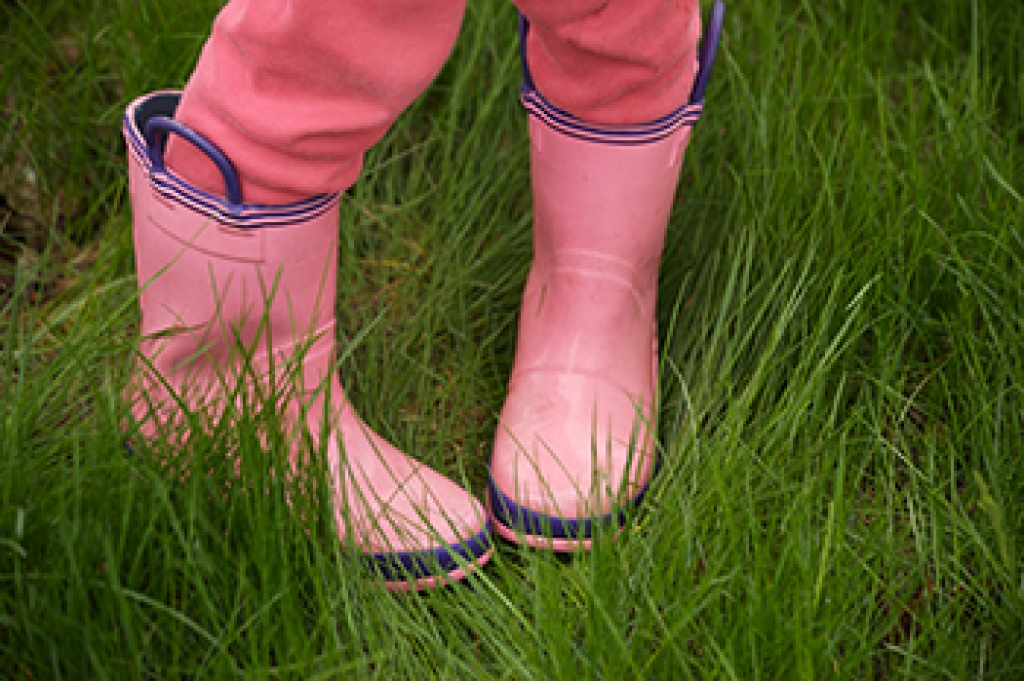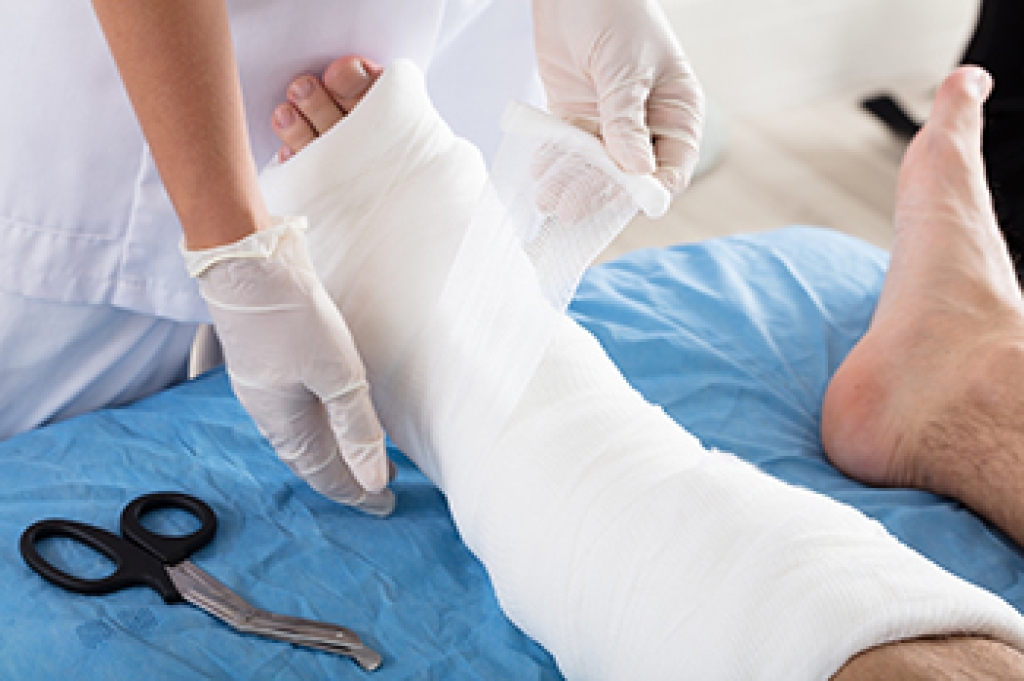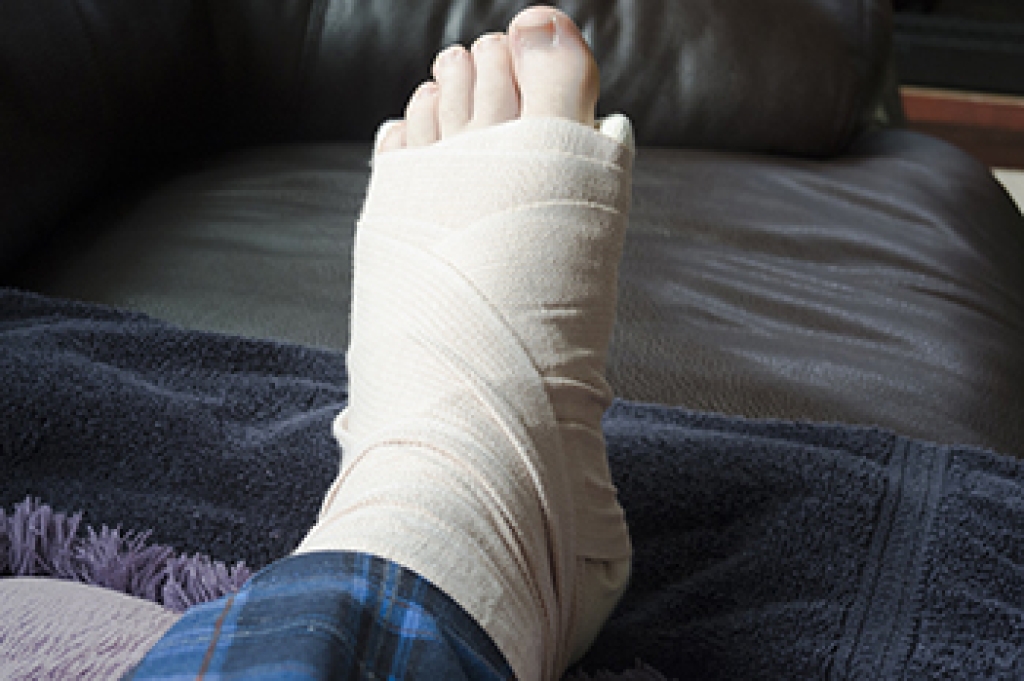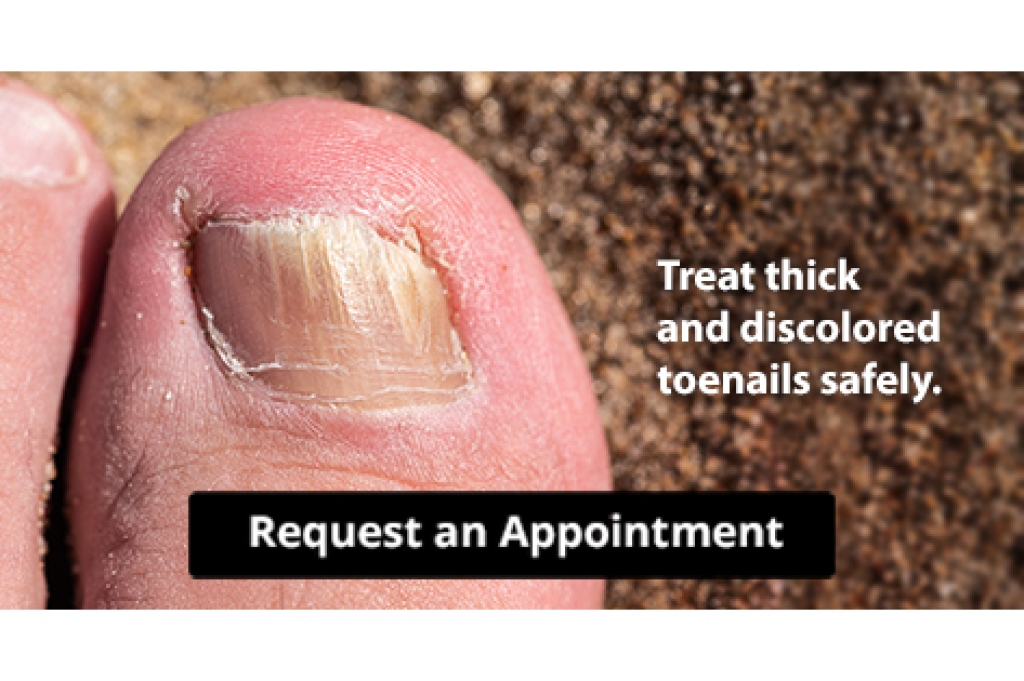Blog
Understanding Intoeing in Children

Intoeing in children is a condition in which the feet turn inward while walking or running. It is commonly noticed during early childhood and often relates to developmental alignment changes. Frequent causes include conditions where the thigh bone rotates inward, the shin bone twists inward, or the front portion of the foot is curved. These variations are usually related to growth patterns and positioning before birth. Although many cases improve naturally, some children may experience tripping, discomfort, or gait concerns. A podiatrist can evaluate lower limb alignment and recommend supportive treatments when needed. If your child has been born with intoeing, it is suggested that you consult a podiatrist who can help you to manage this condition.
The health of a child’s feet is vital to their overall well-being. If you have any questions regarding foot health, contact one of our doctors of Andrea Hyperbaric Wound Care & Health Center. Our doctors can provide the care you need to keep you pain-free and on your feet.
Tips for Keeping Children's Feet Healthy
- Make sure their shoes fit properly
- Look for any signs of in-toeing or out-toeing
- Check to see if they have Clubfoot (condition that affects your child’s foot and ankle, twisting the heel and toes inward) which is one of the most common nonmajor birth defects.
- Lightly cover your baby’s feet (Tight covers may keep your baby from moving their feet freely, and could prevent normal development)
- Allow your toddler to go shoeless (Shoes can be restricting for a young child’s foot)
- Cut toenails straight across to avoid ingrown toenails
- Keep your child’s foot clean and dry
- Cover cuts and scrapes. Wash any scratches with soap and water and cover them with a bandage until they’ve healed.
If you have any questions, please feel free to contact our office located in Astoria, NY . We offer the newest diagnostic and treatment technologies for all your foot care needs.
Risk Factors for Achilles Tendon Tears

Achilles tendon tears are among the most frequent tendon injuries. They often occur suddenly during physical activity that involves rapid pushing off, jumping, or changing direction. Risk is higher in active middle-aged men, particularly during sports like basketball, though non-sport-related tears are more common in older people. A history of ongoing Achilles tendon pain or degeneration increases vulnerability, as does advancing age, which can reduce tendon strength and flexibility. Certain medical conditions, including diabetes, inflammatory joint disease, and metabolic disorders, may weaken the tendon over time. Some medications, such as specific antibiotics or long-term corticosteroids, have also been linked to a higher risk. Tears typically cause sudden pain, swelling, and difficulty pushing off the foot. A podiatrist can assess symptoms, perform clinical testing, confirm the diagnosis, and guide appropriate treatment to restore strength and function. If you believe you have torn your Achilles tendon, it is suggested that you make an appointment with a podiatrist for help.
Achilles tendon injuries need immediate attention to avoid future complications. If you have any concerns, contact one of our doctors of Andrea Hyperbaric Wound Care & Health Center. Our doctors can provide the care you need to keep you pain-free and on your feet.
What Is the Achilles Tendon?
The Achilles tendon is a tendon that connects the lower leg muscles and calf to the heel of the foot. It is the strongest tendon in the human body and is essential for making movement possible. Because this tendon is such an integral part of the body, any injuries to it can create immense difficulties and should immediately be presented to a doctor.
What Are the Symptoms of an Achilles Tendon Injury?
There are various types of injuries that can affect the Achilles tendon. The two most common injuries are Achilles tendinitis and ruptures of the tendon.
Achilles Tendinitis Symptoms
- Inflammation
- Dull to severe pain
- Increased blood flow to the tendon
- Thickening of the tendon
Rupture Symptoms
- Extreme pain and swelling in the foot
- Total immobility
Treatment and Prevention
Achilles tendon injuries are diagnosed by a thorough physical evaluation, which can include an MRI. Treatment involves rest, physical therapy, and in some cases, surgery. However, various preventative measures can be taken to avoid these injuries, such as:
- Thorough stretching of the tendon before and after exercise
- Strengthening exercises like calf raises, squats, leg curls, leg extensions, leg raises, lunges, and leg presses
If you have any questions please feel free to contact our office located in Astoria, NY . We offer the newest diagnostic tools and technology to treat your foot and ankle needs.
Offloading Strategies That Help Foot Wounds Heal

Wounds on the feet can develop for many reasons. Diabetes, poor circulation, nerve damage, pressure points, in addition to wearing ill-fitting shoes, surgery, and trauma can all break the skin and slow healing. Treatment often includes wound cleaning, infection control, specialized dressings, and sometimes antibiotics or advanced therapies. Offloading is just as important as these treatments. Offloading means reducing pressure on the wounded area so new tissue can form. This may involve a surgical shoe, removable boot, cast, custom insert, or temporary padding. When pressure continues, wounds reopen or fail to heal, even with good care. Proper offloading allows blood flow to improve and inflammation to settle. It also helps prevent deeper infection and further breakdown. Following offloading instructions at home is essential. Walking barefoot or skipping use of devices can reverse progress. Early care often improves outcomes. If you have sustained any kind of foot wound, it is suggested that you see a podiatrist for proper treatment and care.
Wound care is an important part in dealing with diabetes. If you have diabetes and a foot wound or would like more information about wound care for diabetics, consult with one of our doctors from Andrea Hyperbaric Wound Care & Health Center. Our doctors will assess your condition and provide you with quality foot and ankle treatment.
What Is Wound Care?
Wound care is the practice of taking proper care of a wound. This can range from the smallest to the largest of wounds. While everyone can benefit from proper wound care, it is much more important for diabetics. Diabetics often suffer from poor blood circulation which causes wounds to heal much slower than they would in a non-diabetic.
What Is the Importance of Wound Care?
While it may not seem apparent with small ulcers on the foot, for diabetics, any size ulcer can become infected. Diabetics often also suffer from neuropathy, or nerve loss. This means they might not even feel when they have an ulcer on their foot. If the wound becomes severely infected, amputation may be necessary. Therefore, it is of the upmost importance to properly care for any and all foot wounds.
How to Care for Wounds
The best way to care for foot wounds is to prevent them. For diabetics, this means daily inspections of the feet for any signs of abnormalities or ulcers. It is also recommended to see a podiatrist several times a year for a foot inspection. If you do have an ulcer, run the wound under water to clear dirt from the wound; then apply antibiotic ointment to the wound and cover with a bandage. Bandages should be changed daily and keeping pressure off the wound is smart. It is advised to see a podiatrist, who can keep an eye on it.
If you have any questions please contact our office located in Astoria, NY . We offer the newest diagnostic and treatment technologies for all your foot and ankle needs.
Types of Metatarsal Fractures in the Foot

Metatarsal fractures are breaks in one of the five long bones in the forefoot that connect the toes to the midfoot. These injuries are classified by location. A fracture may involve the head, shaft, or base of a metatarsal. Shaft fractures often follow twisting forces or direct impact and cause swelling and pain with walking. Stress fractures usually affect the second or third metatarsal and develop gradually from repeated loading. The fifth metatarsal is fractured often and includes avulsion fractures, Jones fractures, and stress breaks near the base. Jones fractures need careful identification because healing differs from other fractures. Fractures of the first through fourth metatarsals may also involve midfoot ligaments and affect stability. A podiatrist can identify the fracture type, order imaging, and guide care to support healing. For help dealing with metatarsal fractures, it is suggested that you make an appointment with a podiatrist.
A broken foot requires immediate medical attention and treatment. If you need your feet checked, contact one of our doctors from Andrea Hyperbaric Wound Care & Health Center. Our doctors can provide the care you need to keep you pain-free and on your feet.
Broken Foot Causes, Symptoms, and Treatment
A broken foot is caused by one of the bones in the foot typically breaking when bended, crushed, or stretched beyond its natural capabilities. Usually the location of the fracture indicates how the break occurred, whether it was through an object, fall, or any other type of injury.
Common Symptoms of Broken Feet:
- Bruising
- Pain
- Redness
- Swelling
- Blue in color
- Numbness
- Cold
- Misshapen
- Cuts
- Deformities
Those that suspect they have a broken foot shoot seek urgent medical attention where a medical professional could diagnose the severity.
Treatment for broken bones varies depending on the cause, severity and location. Some will require the use of splints, casts or crutches while others could even involve surgery to repair the broken bones. Personal care includes the use of ice and keeping the foot stabilized and elevated.
If you have any questions, please feel free to contact our office located in Astoria, NY . We offer the newest diagnostic and treatment technologies for all your foot care needs.

